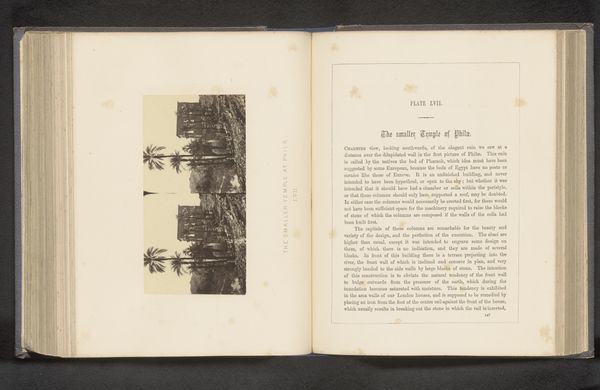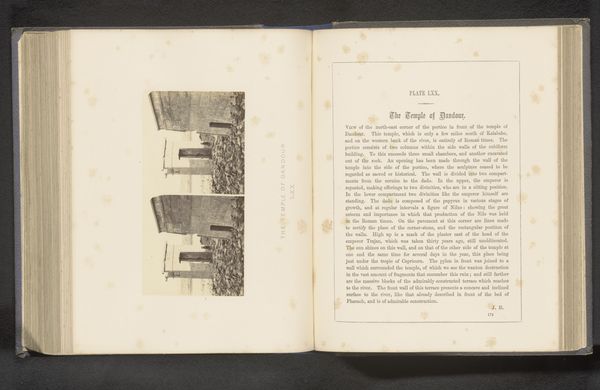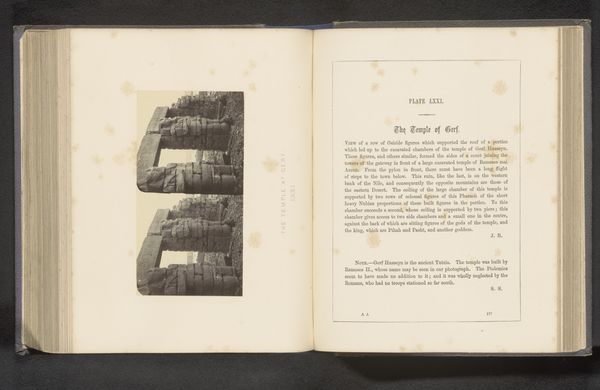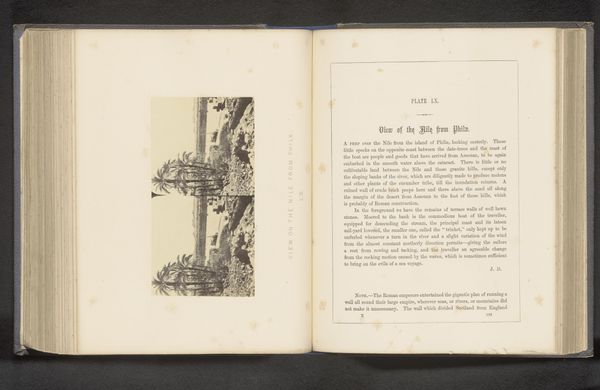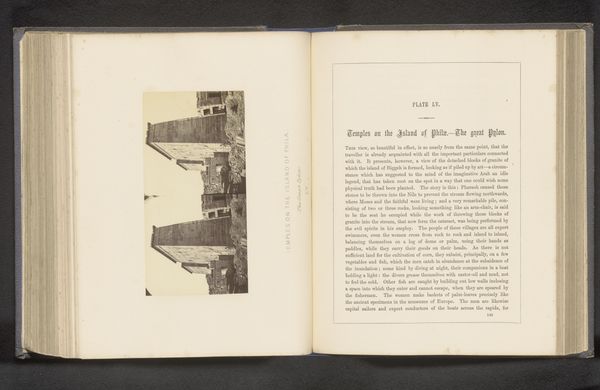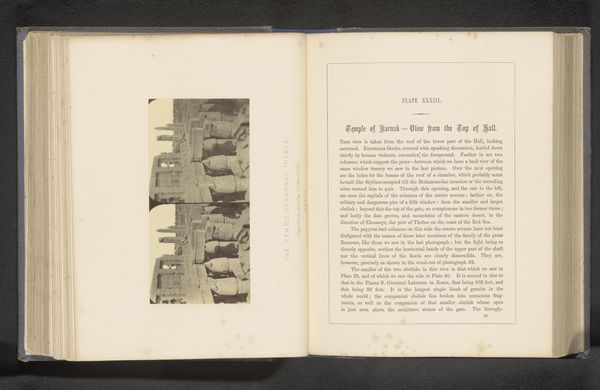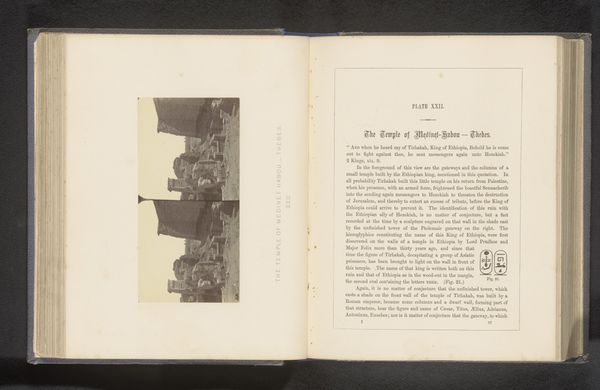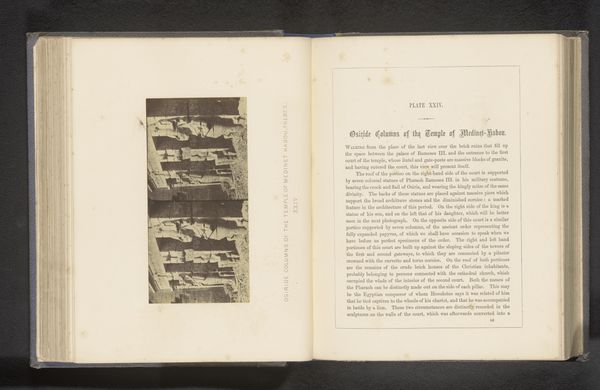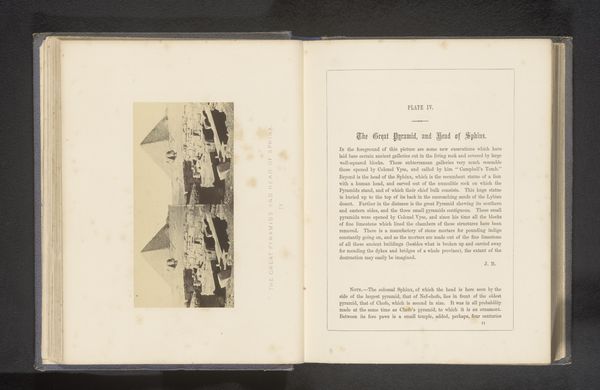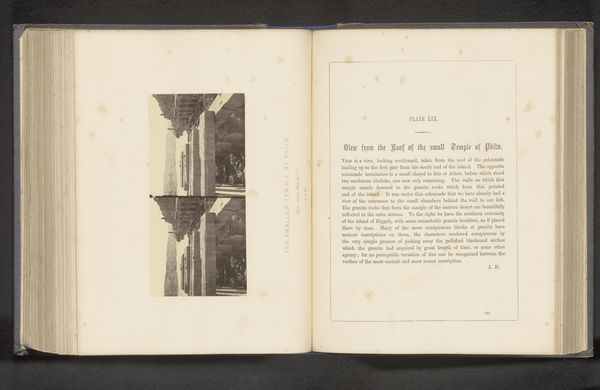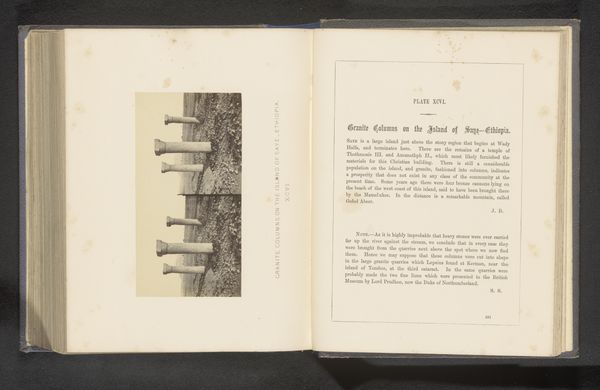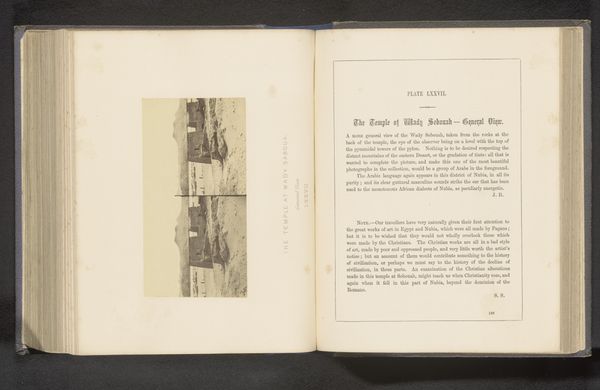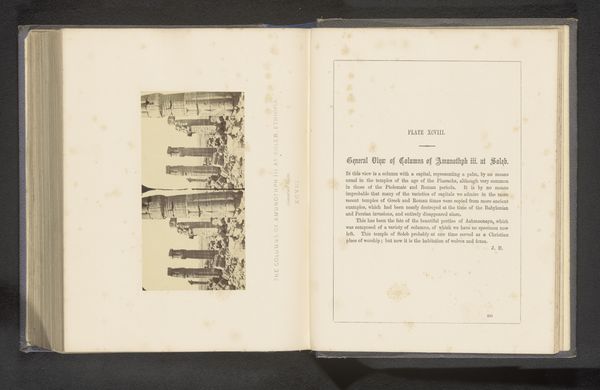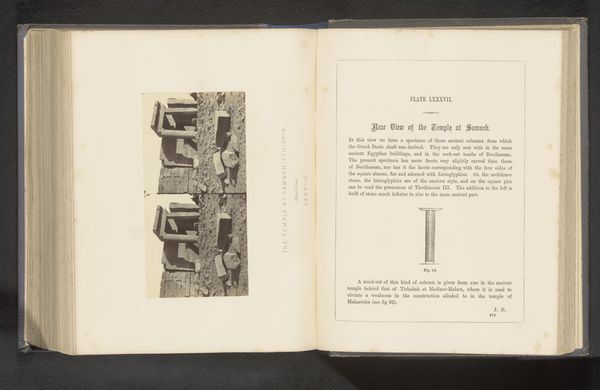
print, photography, site-specific, albumen-print
# print
#
landscape
#
ancient-egyptian-art
#
photography
#
ancient-mediterranean
#
site-specific
#
albumen-print
Dimensions: height 74 mm, width 144 mm
Copyright: Rijks Museum: Open Domain
Curator: Let's dive into this image of the "Gezicht op een tempelcomplex te Philae" – a photograph by Francis Frith from before 1862, showcased in the Rijksmuseum. What strikes you first? Editor: The albumen print… it feels incredibly distant, like a record of something long past, almost inaccessible. And the temple itself seems so solid, immutable against the lightness of the photographic process. What do you see in this piece? Curator: For me, it's the tension between the 'then' and 'now' inherent in photography. Frith employed relatively new technologies of photographic reproduction to capture a civilization that, even then, was ancient. The very materials speak to this intersection: albumen, glass plates, the chemistry involved… Editor: So, you are focusing on the techniques used and materials consumed, rather than on, say, Frith’s artistic vision? Curator: Absolutely! I'm wondering how Frith's presence as a Western photographer shaped the narrative. Did the materials readily available to him, shaped as they were by imperial agendas, influence how he depicted this site of Egyptian cultural significance? The albumen printing process itself involves specific chemicals and techniques influenced by Victorian England. We must question the role of industry in the construction of this historical ‘truth’. Editor: That's fascinating, I hadn't considered that aspect. It highlights the complex layers of production and context intertwined in creating this single image. Curator: Indeed. By thinking about materiality, we start unraveling the power structures at play, prompting deeper reflections on what it means to 'capture' history through the lens of industrialized image-making. What started out as what seemed like a straight documentation is indeed quite complex. Editor: I definitely have a different appreciation for Frith's work now. Thanks for your perspective.
Comments
No comments
Be the first to comment and join the conversation on the ultimate creative platform.
